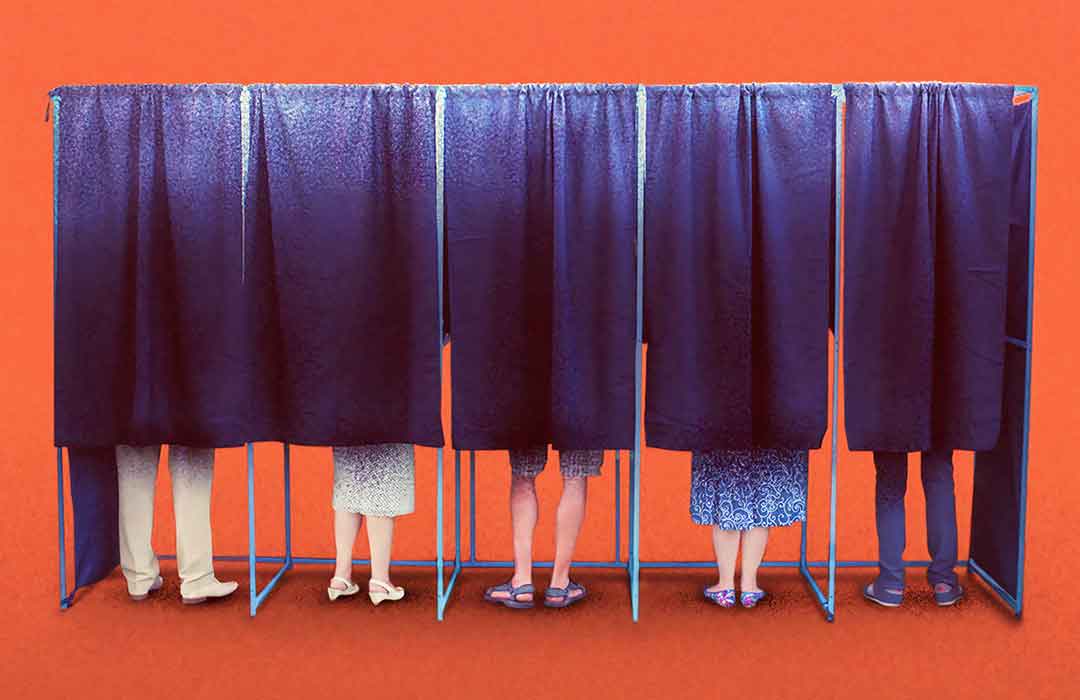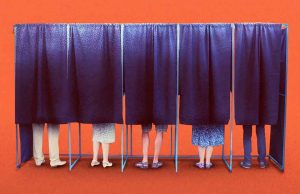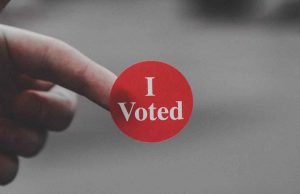
Ruthless attacks on both sides of the political aisle, in hopes of persuading voters. Nonstop alerts about the latest campaign news, like who’s projected to win the election or who has had the latest political blunder. Fights between “friends,” for all of Facebook and Twitter to see. Misinformation that begs the question, “Is what I’m reading real?”
Several years ago, Couples Therapist Steven Stosny coined the term “election stress disorder” to encapsulate the stress that comes with election season. This stress can be divided into a few main categories: 1) negativity of the campaigns, 2) continual news alerts, 3) feuds on social media, and 4) the spread of misinformation.
The combination of these four sources of election related stress can make you feel overwhelmed and have many negative implications on your health. Instead of waiting for November to come and go, do what you can now to mitigate stress from politics and ward off what Stosny calls “election stress disorder.”
Negativity on Both Sides of the Political Aisle
Political campaigns are built around the art of persuasion (or, at least successful campaigns). Mastering the art of persuasion means convincing people to do something that he or she recommends. When it comes to political campaigns, this means convincing the people to vote for them. And often, doing so involves painting the other candidate(s) in a negative light.
While these ruthless attacks might persuade us one way or another (thereby fulfilling the candidate’s goal), they can be largely unsettling and serve as a major source of election related stress. Many of us are inundated with these malicious ads on our TV, computer, phone, or all of the above, every time we use these devices. And we’re met with the same malice when we tune into discussions and debates. It can feel like escaping this negativity is impossible—but it isn’t. “Remember that you cannot control others’ words or actions, but you can control your reaction,” says Emily Simonian, MA, a Licensed Marriage and Family Therapist at Thriveworks Counseling in Washington, DC. “You don’t have to attend every discussion, debate, or argument,” she adds.
You don’t have to read every ad that you come across on Facebook. You don’t have to watch every debate. Simonian’s advice centers around focusing on what is in your control. You can control your involvement in the ads that are served to you—scroll right past. And you can control your viewing of discussions and debates—if your attendance is doing more harm than good, don’t tune into the next one. These simple, yet important tips can help you mitigate stress from politics.
The News Never Stops
The presidential candidates aren’t the only ones causing us election related stress. Virtually every media outlet and news platform out there is covering the latest election news 24/7. Not to mention that during election season, many (dare I say most) topics become political. Too much news exposure can make anyone feel anxious, whether it’s political or not.
Ask yourself the following questions. Your answers can help you better understand what you need to control the stress that might come from keeping up with political news:
- Do you enjoy following the latest election news and participating in election-related events? “How much time you spend thinking about or participating in election-related events or taking in news is such a personal choice,” says Simonian. “Some people feel excited about the possibility of change and prefer to engage in election season activities, while others feel inundated with news and opinions. Identify how you’re impacted and adjust your priorities accordingly.”
- Is news exposure causing significant stress or having other negative implications on your health? “If exposure to the news results in emotional overwhelm, setting a time limit for yourself to obtain pertinent daily or weekly news can be beneficial,” Simonian explains. “It might also be helpful to consider that there are many news outlets—TV, print, internet, etc.—and gathering information from just one, perhaps the platform that you find the least overwhelming, could have a positive effect on your mental health.”
The bottom line is that you need to pay attention to your needs and adjust your habits accordingly. Doing so will help you ward off the dreaded “election stress disorder.”
Aggressive and Unsettling Tiffs on Social Media
For many, social media feuds are the worst or most prevalent source of election related stress. This goes for those who partake in these arguments themselves, as well as those who are mere bystanders to the arguments occurring on their social feeds. It’s like a car accident: You want to look away, but you can’t—and you don’t.
The worst part about talking politics on social media is that doing so is largely unproductive (if people were having productive, respectful conversations, they wouldn’t be called feuds or arguments). Often, these arguments are a whole lot of “I’m right, you’re wrong,” as all parties belittle one another for their “stupid” opinions.
As we have established, these tiffs on social media can serve as a major source of election related stress. If this is true for you, consider taking a break from social media. There are many benefits to taking a social media hiatus. Additionally, you could try cutting back on the amount of time you spend on social media each day or even unfollow people that are argumentative and/or disrespectful. A final tip from Simonian is to adjust your perspective. Practice acceptance and tolerance, “two of the cornerstones of maintaining healthy personal relationships,” she says. “Thinking of it that way is known as a cognitive reframe, a helpful tool for seeing a situation from a more positive perspective.”
The Spread of Misinformation
Some people refer to the present as “the age of misinformation.” As of late, the world has seen an increase in the spread of misinformation or “fake news,” which has added another element of election related stress. As we scroll through Facebook, Twitter, and other social media feeds, we must wonder and ask ourselves, “Is what I’m reading real?” Now more than ever we must fact-check and be sure that the sources we subscribe to are reliable.
Staying on top of misinformation ourselves is stressful enough, but fact-checking our loved ones creates another sticky layer. On one hand, we want to make sure that they aren’t falling victim to misinformation and spreading any false news themselves; on the other, if we do find that they’ve shared a fake news story or cited an unreliable source, bringing this to their attention can open a can of worms. Nobody likes to admit that they’re wrong—and many of us refuse to believe that we’re wrong, digging ourselves a deeper hole than before. Our point? Your friend or family member might not respond well.
So, how do we manage the stress that comes from monitoring misinformation for ourselves and our loved ones? Simonian says it all goes back to making adjustments, based on how you’re feeling. Consider the differences between objective/critical thinking and emotional/anxious thinking. A few indicators that you’ve transitioned from the former to the latter include:
- Physical sensations (racing heart, tight chest, fatigue)
- Intense emotional reactions (rage, tearfulness, fear)
- Cognitive rumination (repetitive or racing thoughts)
If you recognize these signs as you work through a false news story or in confronting a loved one about misinformation, “it might be time to take a break and refocus your attention elsewhere,” says Simonian.
Successfully Managing Stress from Politics
The so-called “election stress disorder” is not something that you want to mess with. Unfortunately, though, many of us fall victim to it during election season, as we are overwhelmed with negativity, news alerts, social media feuds, and misinformation. Fortunately, as we’ve covered above, we can learn to manage and mitigate election related stress.
We hope that our tips help. If you find that you’re still struggling or that the negative implications are far worse than a little stress or anxiety, consider working with a therapist. A therapist can offer personalized help for your specific needs.
Let’s keep in touch! Sign up to receive our newsletter:
Start a Relationship with An Exceptional Counselor
- Skilled and caring professional counselors
- Accepting all major and most insurances
- High-touch customer service & premium benefits
- Same- or next-day appointments
- Ultra-flexible 23.5hr cancellations













